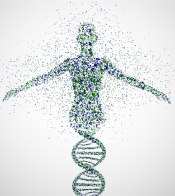The U.S. must do some heavy lifting to prepare for heritable genome editing
By Josephine Johston,
STAT
| 09. 04. 2020
Countries contemplating giving the green light to heritable genome editing received specific guidance from an international commission this week on how to prepare for a future in which the technology is safe and effective enough to use in human reproduction.
The commission was created in response to the news almost two years ago that a scientist in China had edited the genomes of two babies when they were single-cell embryos. (It subsequently emerged that a third baby with an edited genome had been born.)
While the scientist involved, He Jiankui, was widely condemned for conducting a premature and unethical experiment, and later fined and sentenced to jail, his first-in-humans experiment pushed the international community beyond a “germline editing — good or bad?” discussion to actively considering what it would take to justify its use.
Germline gene editing raises particular ethical and safety issues. Gene editing in a young child or adult creates changes that may affect the individual, but are not passed on to his or her children. Germline editing, also known as heritable genome editing, creates changes that...
Related Articles
By Scott Solomon, The MIT Press Reader | 02.12.2026
Chris Mason is a man in a hurry.
“Sometimes walking from the subway to the lab takes too long, so I’ll start running,” he told me over breakfast at a bistro near his home in Brooklyn on a crisp...
By Diaa Hadid and Shweta Desai, NPR | 01.29.2026
MUMBRA, India — The afternoon sun shines on the woman in a commuter-town café, highlighting her almond-shaped eyes and pale skin, a look often sought after by couples who need an egg to have a baby.
"I have good eggs,"...
By George Janes, BioNews | 01.12.2026
A heart attack patient has become the first person to be treated in a clinical trial of an experimental gene therapy, which aims to strengthen blood vessels after coronary bypass surgery.
Coronary artery bypass surgery is performed to treat...
By Staff, ScienceDaily | 01.05.2026
Scientists at UNSW Sydney have developed a new form of CRISPR technology that could make gene therapy safer while also resolving a decades-long debate about how genes are switched off. The research shows that small chemical markers attached to DNA
...




